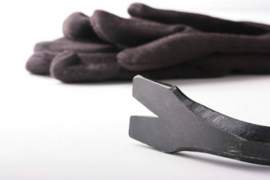
Disorderly Conduct

What is Disorderly Conduct?
Disorderly conduct refers to the legal charge given to an individual who is disturbing the peace, loitering in prohibited areas, or is drunk in public. Disorderly conduct is a state law, meaning some states do not possess laws for disorderly conduct or hold different interpretations as to what constitutes the illegal action. That being said, almost every State in the United States has a disorderly conduct law that makes it a crime to take part in the aforementioned actions.
There are a number of types of unruly conduct that may fit the definition of disorderly conduct. These definitions are outlined in particular local government statutes. Such statutes are often used as a broad definition to prosecute all acts of disorderly conduct. For example, police commonly utilize this charge to keep the peace when a group of people are behaving in a disorderly or disruptive manner.
Disorderly conduct, although illegal, carries a crucial characteristic. Those charged with disorderly conduct pose no serious public danger. As a result of this characteristic, disorderly conduct is typically classified as a violation or a simple misdemeanor.
The general definition of disorderly conduct defines the infraction in the following ways: (1) the alleged party must engage in tumultuous conduct such as fighting or public intoxication. (2) The alleged party must make unreasonable noise and continue to do after being told to stop or be quiet. (3) The alleged party must disrupt a lawful group of people in a public setting.
As stated earlier, the charge of disorderly conduct is widely up for interpretation. Disorderly conduct charges are often fought by the defending party. Freedom of speech arguments are commonly attached to the charge. As a result of this, a State’s interpretation, regardless of the definition, of the action is not uniform.
The code and statutes attached to disorderly conduct will fluctuate based on the location in which the alleged party was accused of the infraction. As a result of the misdemeanor classification, disorderly conduct typically carries a fine, and in some cases jail time, as its punishment.
What to do if you are charged with Disorderly Conduct?
Disorderly conduct is a misdemeanor infraction. Because of this classification the inclusion of a legal attorney or professional is not mandated, although it is strongly recommended. The inclusion of a legal professional in your court battle can lessen the fine or drop the charges given the delivery of favoring evidence.
Additionally, there is considerable leeway in regards to what constitutes disruptive public behavior. This looseness of definition can enable a civil attorney to clear the charges or lessen them. That being said, disorderly conduct charges vary greatly on a case-by-case basis and will fluctuate based on the State in which the act was committed.
NEXT: Indecent Exposure





















